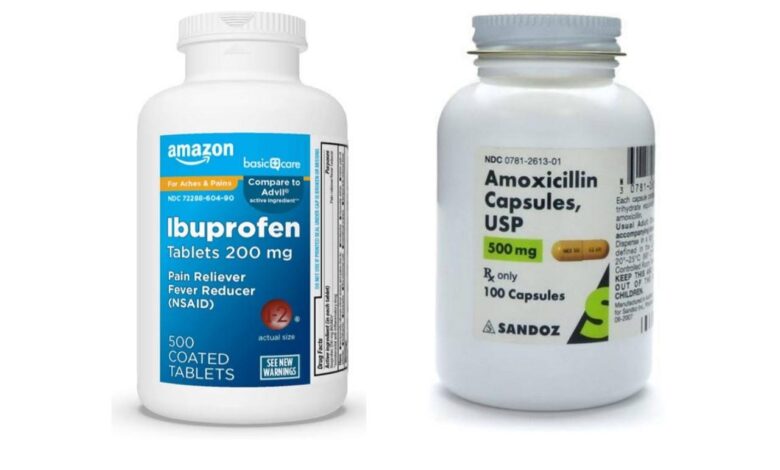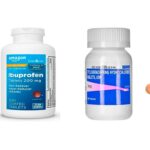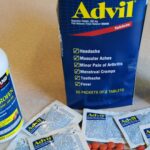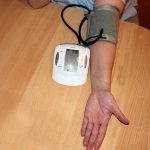Can You Take Ibuprofen With Amoxicillin?

Mixing any combination of prescription drugs, over-the-counter drugs can be unpredictable and dangerous. Most fatal overdoses involve the use of more than one type of drug (poly-drug use).
Poly-drug use is dangerous because different drugs act on our bodies in different ways. The harmful effects are magnified by using more than one drug type.
What is ibuprofen?
Ibuprofen is one of a group of drugs called non-steroidal anti-inflammatory drugs (NSAIDs). It’s widely used for its pain-relieving and anti-inflammatory effects.
It’s available over the counter as tablets or capsules in doses of 200–400 mg and can be taken up to three times a day after food. Some tablets are designed to release the drug slowly over a period of time, and some people find these helpful for night-time pain relief.
Higher doses of ibuprofen are available on prescription and can be used if you have rheumatoid arthritis or another type of inflammatory arthritis.
Ibuprofen is also available in lipid-based soft capsules. These can be bought from pharmacies and are as effective as prescribed ibuprofen in relieving flaring joint pain.
If ibuprofen doesn’t give enough relief from pain, or if you need pain relief over a long period of time, then you should speak to your doctor, who may be able to prescribe a stronger type of NSAID or a combination of drugs that will be more effective.
What is Amoxicillin?
Amoxicillin is a prescription medicine that’s used to treat a variety of bacterial infections. Amoxicillin is a penicillin antibiotic that kills bacteria or slows their growth.
Amoxicillin may be recommended to treat infections of the nose, ears, throat, urinary tract, or skin. It can also be used for pneumonia, tonsillitis, or bronchitis. Sometimes it’s given with other medicines to get rid of H. pylori, a species of bacteria that causes ulcers. The U.S. Food and Drug Administration (FDA) originally approved this medicine in 1974. It’s sold under various brand names.
Can you take ibuprofen with amoxicillin?
Yes, you take ibuprofen with amoxicillin if there is a need to ease pain or lower a fever while you’re taking amoxicillin. However, do not use other antibiotics that may affect your kidney or stomach because they could interact with ibuprofen, which can also be toxic to the kidney in some patients. Certain antibiotics can also increase your risk for bleeding, and ibuprofen on its own can also increase the risk of bleeding.
How should Ibuprofen be used?
Prescription ibuprofen comes as a tablet to take by mouth. It is usually taken three or four times a day for arthritis or every 4 to 6 hours as needed for pain. Nonprescription ibuprofen comes as a tablet, chewable tablet, suspension (liquid), and drops (concentrated liquid). Adults and children older than 12 years of age may usually take nonprescription ibuprofen every 4 to 6 hours as needed for pain or fever. Children and infants may usually be given nonprescription ibuprofen every 6 to 8 hours as needed for pain or fever, but should not be given more than 4 doses in 24 hours. Ibuprofen may be taken with food or milk to prevent stomach upset. If you are taking ibuprofen on a regular basis, you should take it at the same time(s) every day. Follow the directions on the package or prescription label carefully, and ask your doctor or pharmacist to explain any part you do not understand. Take ibuprofen exactly as directed. Do not take more or less of it or take it more often than directed by the package label or prescribed by your doctor.
Ibuprofen comes alone and in combination with other medications. Some of these combination products are available by prescription only, and some of these combination products are available without a prescription and are used to treat cough and cold symptoms and other conditions. If your doctor has prescribed a medication that contains ibuprofen, you should be careful not to take any nonprescription medications that also contain ibuprofen.
Swallow the tablet whole; do not chew or crush it.
If you are selecting a product to treat cough or cold symptoms, ask your doctor or pharmacist for advice on which product is best for you. Check nonprescription product labels carefully before using two or more products at the same time. These products may contain the same active ingredient(s) and taking them together could cause you to receive an overdose. This is especially important if you will be giving cough and cold medications to a child.
Nonprescription cough and cold combination products, including products that contain ibuprofen, can cause serious side effects or death in young children. Do not give these products to children younger than 4 years of age. If you give these products to children 4 to 11 years of age, use caution and follow the package directions carefully.
If you are giving ibuprofen or a combination product that contains ibuprofen to a child, read the package label carefully to be sure that it is the right product for a child of that age. Do not give ibuprofen products that are made for adults to children.
Before you give an ibuprofen product to a child, check the package label to find out how much medication the child should receive. Give the dose that matches the child’s age on the chart. Ask the child’s doctor if you don’t know how much medication to give the child.
Shake the suspension and drops well before each use to mix the medication evenly. Use the measuring cup provided to measure each dose of the suspension, and use the dosing device provided to measure each dose of the drops.
The chewable tablets may cause a burning feeling in the mouth or throat. Take the chewable tablets with food or water.
Stop taking nonprescription ibuprofen and call your doctor if your symptoms get worse, you develop new or unexpected symptoms, the part of your body that was painful becomes red or swollen, your pain lasts for more than 10 days, or your fever lasts more than 3 days. Stop giving nonprescription ibuprofen to your child and call your child’s doctor if your child does not start to feel better during the first 24 hours of treatment. Also, stop giving nonprescription ibuprofen to your child and call your child’s doctor if your child develops new symptoms, including redness or swelling on the painful part of his body, or if your child’s pain or fever gets worse or lasts longer than 3 days.
Do not give nonprescription ibuprofen to a child who has a sore throat that is severe or does not go away, or that comes along with fever, headache, nausea, or vomiting. Call the child’s doctor right away, because these symptoms may be signs of a more serious condition.
How should Amoxicillin be used?
Amoxicillin comes as a capsule, a tablet, a chewable tablet, and as a suspension (liquid) to take by mouth. It is usually taken every 12 hours (twice a day) or every 8 hours (three times a day) with or without food. The length of your treatment depends on the type of infection that you have. Take amoxicillin at around the same time every day. Follow the directions on your prescription label carefully, and ask your doctor or pharmacist to explain any part you do not understand. Take amoxicillin exactly as directed. Do not take more or less of it or take it more often than prescribed by your doctor.
Shake the suspension well before each use to mix the medication evenly. The suspension may be placed directly on the child’s tongue or added to milk, fruit juice, water, ginger ale, or another cold liquid and taken immediately.
The chewable tablets should be crushed or chewed thoroughly before they are swallowed.
Swallow the tablets and capsules whole with a full glass of water; do not chew or crush them.
You should begin to feel better during the first few days of treatment with amoxicillin. If your symptoms do not improve or get worse, call your doctor.
Take amoxicillin until you finish the prescription, even if you feel better. If you stop taking amoxicillin too soon or skip doses, your infection may not be completely treated and the bacteria may become resistant to antibiotics.





